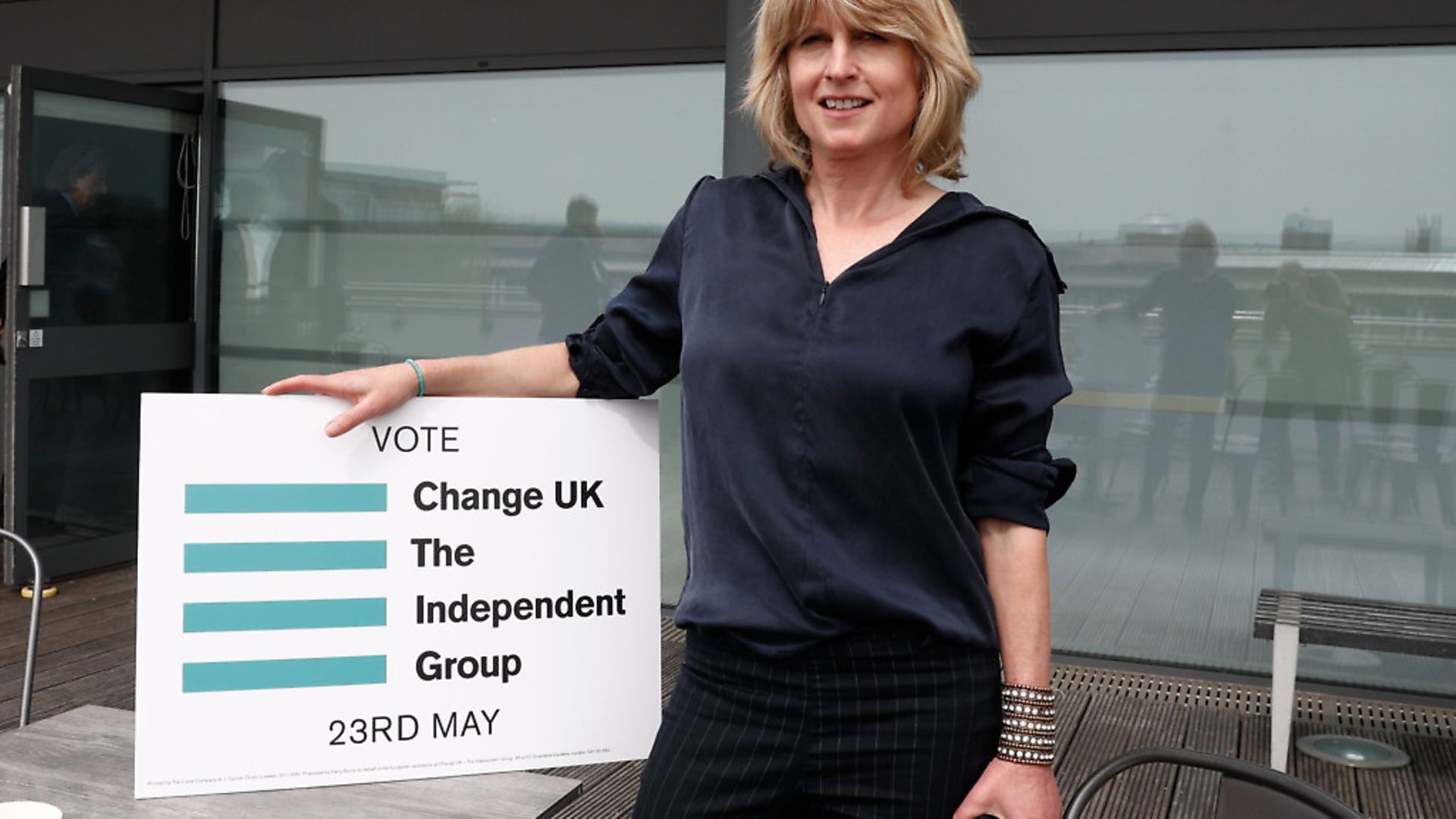
A year after the official launch of Change UK, and her own unveiling as one of its candidates, RACHEL JOHNSON looks back on the doomed party with some affection and admiration.
On the day after Easter Monday, I tweeted: ‘I became a candidate for Change UK on Easter Tuesday last year and was so unsuccessful a politician that people joked if I’d joined the Brexit Party instead, we’d have never left the EU.’
It was a joke, of course. I was exaggerating my own role in the failure of Change UK. Nobody much liked the tweet, but then, nobody much liked Change UK either. The party also failed to go viral or, indeed, to find enough of an audience at the end of last year to justify its continuing existence.
In fact, Change UK – which started its short life in February 2019 as the Independent Group, (aka ‘the Tiggers’), before launching as a new political party a year ago this week to fight the European elections, then expiring in December as The Independent Group for Change – has a case for entering the Guinness Book of Records as the most unsuccessful political party of all time.
At those European elections in May 2019 it failed to win a single seat, arguably taking 600,000 votes (that was how many votes we garnered nationwide, or 3.3%) from the Liberal Democrats and other pro-European parties along the way.
Every single one of its founding MPs, eight from the Labour Party and three from the Conservative Party, lost their seats in the general election of 2019, and Anna Soubry – a Jeanne d’Arc of Remain – closed the party shortly afterwards.
The death rites were read over the entrails of the group many months before its deregistration as a political party. As a first-time political candidate, and passionate pro-European, even I knew the game was up on the day of the splashy launch last April – with full media attendance and croissants – of its European election campaign in Bristol.
Even I could discern that the decision to contest a nationwide election would expose all the party’s faults and shortcomings while failing to showcase any of its strengths. (For a fuller account, I might at this point direct you to my book, Rake’s Progress: My Political Midlife Crisis, about my short spell as a candidate in the South West, a seat which we lost hands down to the Brexit Party.)
But it was not for nothing. I would like to take a moment here to register the pure nobility of initial purpose the original Gang of 11 embodied. Chuka Umunna, Heidi Allen, Anna Soubry, Sarah Wollaston, Mike Gapes, Gavin Shuker, Joan Ryan, Angela Smith, Chris Leslie, Ann Coffey and Luciana Berger showed the greatest political courage in abandoning their parties to follow a higher path of evidence-based policymaking and a total rejection of ideology and leadership cults, making it crystal clear that voting for Jeremy Corbyn was not an option.
In order to prepare this obituary, I consulted the other candidates on my slate in the south west, all of whom were better equipped for any sort of public office than I was. ‘I am pleased I stood,’ says Liz Sewell, who previously ran the lone parent charity Gingerbread. ‘I just felt it was important to stand beside people who put their careers on the line.’ Though even she admits that ‘we should have been called the Waitrose Party. It would have identified our demographic.’
Another candidate, Matthew Hooberman, used to work for the Labour Party. ‘The euro elections should never have happened,’ he says now. ‘And the new party should not have risked fighting it and then they would have had more time to build and launch, perhaps with the other MPs who had promised but didn’t follow.’
Yes! I often wonder, what if the 21 unwhipped Tories (remember them?) who baulked at a no-deal Brexit had joined forces with the 11 Change UK leaders… they would have been a power in the land!
But there’s no point crying over spilt milk. With hindsight, the party did amazing, as commentators say at football matches, especially at the beginning when it was polling above 15%.
Imagine the to-do list the First Eleven faced back in February – to launch a new political party to stop Brexit and anti-Semitism, and without anything leaking.
‘Taking a stand,’ as Nicola Murphy, the former executive director of the TIG wrote a few months ago, ‘Is not a failure.’
I would like to thank the former leaders of the Independent Group/Change UK for taking a chance on me. I feel I let them down. During the campaign, I had no idea what to say in response to killer questions. I did not speak politician, and it showed.
‘Why would any good folk put themselves through the firing squad that is politics when it is only the weak that survive?’ asks Matthew Hooberman. ‘History will say we assisted the madness when we tried to stop it,’ he concludes. ‘In fact, history won’t even notice what happened.’
I disagree. I think history will record the 11 founding leaders of TIG/Change UK as European heroic failures, actually. We were donkeys led by lions.









